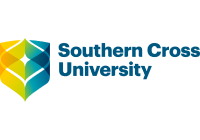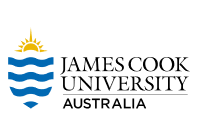Pursuing an MBA in Australia has become an attractive option for students worldwide. It provides a special fusion of excellent instruction, global networking opportunities, and vibrant student life.
Australia's business schools are renowned for their innovative teaching methods, diverse specialisation options, and strong industry connections, making them a top choice for those seeking to further their careers in a global environment.
From understanding the admission process to choosing the right program and navigating post-MBA career opportunities, this comprehensive guide covers everything you need to know about pursuing an MBA in Australia. Read this blog to know more!
Quick Links To Online MBA Programs
RMIT Online
Master of Business Administration (MBA) Online
- 2.7 years part-time, Reduced duration available
- Jan, Mar, May, July, Aug, Oct
- $4,560 per course, FEE-HELP available
Southern Cross University
Master of Business Administration (MBA) Online
- 2 years part-time
- Jan, Mar, May, July, Aug, Oct
- $2,990 per unit, FEE-HELP available
UTS Online
Master of Business Administration (Online)
- 2 years (minimum), Part-time
- 12 subjects | 7-week study blocks
- $4,250 per subject, FEE-HELP available
James Cook University
Master of Business Administration Global (MBA Online)
- 24 months , Part-time
- $3,700 per subject , FEE-HELP is available
- 12 (One subject per each 7-week study period)
Let's get straight to the point
Pursuing an MBA in Australia offers global exposure, high-quality education, and strong industry connections, making it a desirable choice for career advancement. This guide covers the essentials, from eligibility criteria (bachelor's degree, work experience, GMAT, and English proficiency) to the admissions process and student visa requirements.
Financial aid options, including university scholarships, government grants, private scholarships, and loans, help manage costs. Post-MBA graduates find robust finance, consulting, tech, and healthcare opportunities. Students can also leverage professional events, associations, career services, and alums networks for networking and development.
Living in Australia offers a high quality of life with manageable costs and diverse accommodation options. Health insurance and a student visa are required for international students.
Embracing Australia's culture and vibrant lifestyle adds to the rewarding MBA experience, making Australia an ideal place for students ready to enhance their careers globally.
Eligibility And Requirements For MBA Programs In Australia

To apply for an MBA in Australia, applicants typically need:
- Bachelor's Degree: From a recognised institution.
- Work Experience: Most programs require several years of professional experience.
- GMAT Score: A satisfactory score on the Graduate Management Admission Test.
- English Proficiency: International applicants may need TOEFL or IELTS scores.
Additional application materials may include personal statements, recommendation letters, and interviews. International students must also secure a student visa. Visa requirements include:
- Proof of enrollment in an approved program.
- Evidence of funds for living expenses.
- Health insurance coverage for the duration of studies.
MBA students must meet academic standards upon admission, including maintaining a specific GPA and completing required coursework. Most programs also incorporate internships and mentoring opportunities, providing valuable professional development.
Admission Process For Australian MBA Programs
The MBA application process in Australia generally includes the following steps:
- Investigate Programmes: Find those that fit your objectives.
- Meet Eligibility Requirements: Ensure you meet all prerequisites.
- Take Required Exams: Obtain qualifying GMAT and English proficiency scores.
- Submit Applications: Each application should typically include:
- Online application form
- Academic transcripts
- Personal statement
- Resume or CV
- Recommendation letters
- GMAT and English proficiency scores
- Attend an Interview: Interviews may be required for some programmes.
- Await Decision: Programs can take several months to process applications.
MBA programs in Australia are competitive, so presenting your qualifications clearly and professionally can make a difference in your acceptance. Additionally, international students must apply for a student visa as part of the process.
Financial Aid And Scholarships For MBA Students
Studying for an MBA in Australia can be expensive, but some financial aid alternatives might assist offset expenses:
- University-Specific Scholarships
- Many Australian universities offer scholarships for MBA students, ranging from full grants to partial tuition waivers covering tuition and living costs. Research the scholarships offered by each university to understand eligibility requirements.
- Government Scholarships
- The Australian government offers programs like the Australia Awards and the Endeavour Scholarships and Fellowships, providing substantial financial support to international students.
- Private Scholarships
- Numerous private organisations also offer scholarships based on merit, monetary need, or a combination of the two. These can provide additional funding for tuition and living expenses.
- Student Loans
- International students can access student loans through specific banks and financial institutions, but reviewing loan terms and considering the long-term financial implications before borrowing is crucial.
Exploring these options can help reduce the financial burden, allowing MBA students to focus on their academic and professional growth.
Career Opportunities After An MBA In Australia
Australia offers MBA graduates a variety of employment options, with prominent industries including finance, consulting, technology, and healthcare.
- Finance
- With a strong finance sector, MBA graduates can seek venture capital, private equity, and investment banking roles. Companies like Macquarie Group, ANZ, and Commonwealth Bank actively hire MBA graduates.
- Consulting
- Consulting firms such as McKinsey & Company, Bain & Company, and Boston Consulting Group are major employers of MBA graduates in Australia. Other consulting specialisations include technology, marketing, and strategy.
- Technology
- Australia's tech sector is growing rapidly, creating demand for MBA graduates with business and technical skills. Companies like Atlassian and Canva offer roles in product management, business development, and operations.
- Healthcare
- With an aging population, healthcare is a booming sector in Australia. MBA graduates can explore hospital management, pharmaceuticals, and healthcare consulting roles.
The variety of fields and positions open to MBA graduates in Australia makes it a desirable location for anyone looking for a varied career path.
Networking And Professional Development For MBA Students

Professional growth and networking are key components of an MBA experience. In Australia, MBA students can attend industry events, join professional associations, and participate in alum networks for valuable connections and insights.
- Industry Events and Conferences
- Events such as the AGSM Industry Insights Series and the MBA Career Expo at Melbourne Business School offer industry trends insights and professional networking opportunities.
- Professional Associations
- Associations like the Australian Institute of Management and the Financial Services Institute of Australasia provide MBA students with resources, networking, and industry-specific information.
- Career Services
- Most Australian MBA programs offer career services, including resume reviews, interview preparation, and networking events. Career services can provide valuable guidance as students enter the job market.
- Alumni Networks
- Many MBA programs have active alum networks, offering mentoring, networking, and career support for graduates.
These opportunities allow MBA students to expand their knowledge, develop their skills, and build professional networks to benefit their future careers.
Living In Australia As An MBA Student
Living in Australia as an MBA student is an enriching experience, offering a high quality of life and a friendly community. However, international students need to be mindful of several factors:
- Cost of Living
- Living expenses vary by city. Sydney and Melbourne are more expensive, while cities like Brisbane and Adelaide offer a lower cost of living. Students should budget between AUD 21,000 and AUD 37,000 annually to cover housing, food, transportation, and personal expenses.
- Accommodation Options
- Housing options include on-campus accommodation, off-campus apartments, homestays, and shared housing. On-campus options are typically more convenient, while off-campus housing may offer cost savings.
- Visa Requirements
- International students must have a student visa, which requires documentation of enrollment, financial support, and health insurance. Visa applications are processed online and take three to four weeks to process.
- Healthcare
- Australia's healthcare system is excellent, but international students must have health insurance. Many universities offer health insurance plans as part of their student services.
- Culture and Lifestyle
- Australia is known for its multicultural society and relaxed lifestyle. MBA students have the chance to enjoy the arts, culture, and natural beauty that Australia offers.
With careful planning, MBA students in Australia can enjoy a high standard of living, make valuable connections, and gain a global perspective.
Conclusion
Earning an MBA in Australia might be a transformative investment in your future. With access to world-class education, diverse job opportunities, and an excellent standard of living, Australia is a desirable location for MBA students worldwide.
This manual delineates the essential elements of studying for an MBA in Australia, from admission requirements and financial aid options to career prospects and student life. With the information provided here, you'll be prepared to advance in your academic career.
Are you prepared to apply and start your MBA adventure in Australia? Contact your preferred universities or MBA programs today to learn more and set your path toward professional success. Good luck!
Frequently Asked Questions
It depends on the university and the program. Some MBA programs in Australia require work experience, while others accept students without prior work experience.
The cost of an MBA program in Australia can vary depending on the university and the program. On average, an MBA program in Australia costs around AUD 45,000 to AUD 90,000.
Yes, overseas students pursuing a Master of Business Administration in Australia are permitted to maintain employment of up to 40 hours every two weeks. Having said so, it is essential to emphasise the significance of giving one's academic obligations the highest importance.
International students need to apply for a student visa to study MBA in Australia. The visa application process can be completed online and typically takes around four weeks to process.
Yes, it is possible to stay in Australia after completing an MBA program through various visa options, such as Temporary Graduate Visa and Skilled Migration Visa.





